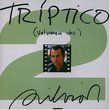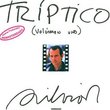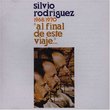Beautiful song with unforgettable memories
Yumiko Kishino | Yokohama, JAPAN | 05/18/2003
(5 out of 5 stars)
"This album was strongly recommended by my collegue. Before that, I didn't have any occasion to listen to Cuban music.
I was very impressed with this album, especially first song "Tu Fantasma". The song depicts a man who is still clinging to memory of former girlfriend. I suppose there might be many people who see themselves in the lyrics to this song. If you are one of them, listening to this song can be agonizing but it will surely give you a wonderful moment. I strongly recommend this album to those who cherish unforgettable memories."
Silvio, a singing poet or a poetical singer?
O. M. Suarez | MayagŁez, Puerto Rico | 05/02/2007
(5 out of 5 stars)
"Undoubtly, Silvio Rodriguez has become a living legend in Latin American music (I mean real music, i.e. meaningful music). This CD is just another proof.
In my honest opinion this CD contains what could be the most outstanding piece of poetry that Silvio has ever written: "Tu fantasma" or "Your ghost." Yes, it is a love song but I do hope that non-Spanish speakers can get the depth of its lyrics. The "ghost" is the memory of a loved one who seemingly departed for some time. There are a dozen metaphors in the lyrics that are comical and represent exaggerations of everyday's events. Example phrases are: "the phone persists in collecting absurdities" or "bugging me keeps being a world sport" or "the door is worn out where the world has knocked in." In this everyday business the poet feels her absence. Everything reminds the poet of his love: the "ghost" (the memory) becomes real and painful, assaulting him from every corner of his home. This is pristine poetry, surreal but not that much. It is as if the soul of Cesar Vallejo had pervaded through Silvio's verses. The music is a beautiful backdrop: it is a crescendo reinforcing the increasing pain for the distant lover. WHAT A MASTERPIECE!
The rest of the CD is also outstanding but lacks the profound lyricism of Tu fantasma. Some songs come somewhat close: "La gota de rocío" (The dew droplet), or "Que signo lleva el amor" (What sign does love bear). "Yo te quiero libre" is less subtle and a little cliche (for my taste at least) but carries a nice tune that evens the scale.
There is only one problem with this CD (or the LP that I bought "one lifetime ago" to paraphrase Silvio...): it's so short! You end up asking for more poetry. Want more? Get the other two CDs that complete the triad or "Tríptico.""
It's not that simple
Sergio Salmeron | Arlington, VA | 04/17/2008
(5 out of 5 stars)
"The metaphors that you referenced are not about the ghost of a loved one; they refer to the communist dictatorship of Cuba spying on his every move. Most of his songs talk about the abuses done by the government, or events that he witnessed. The beauty of Silvio's music lies in his skill to cleverly disguise his pointed criticism of outrageous injustices. He scolds his own government by using metaphors such as "love", "dove", "bird", "serpent", etc. Usually the main theme of the song is the subject of his criticism, but in some instances the subject is the victim that he is trying to save (yes, save) and is either incarcerated, being tortured, or has already died -and he is trying to save their memory (like "Amanda", or "Oleo de una mujer con sombrero"). To understand Silvio, don't take him literally. He derives joy from getting a message across, and people in Cuba do not denounce him because if they are intelligent enought to figure out the messages, they most likely object to the dictatorship to start with. All the while, those who don't get him are most likely the romantics, and they can derive true pleasure from simply listening to the images while their intuition may signal to them that there is depth in the lyrics (which obviously is true). He serves two audiences, but his loyalty is to the intellectuals... he describes this in his song "debo partirme en dos" where he describes critics asking him to sing things that make sense, but he opts not to, because his love is not in selling his music, but in creating art. He is a romantic, but not in your traditional sense; his romanticism lies in speaking out against injustice for the sake of humanity."


 Track Listings (9) - Disc #1
Track Listings (9) - Disc #1


